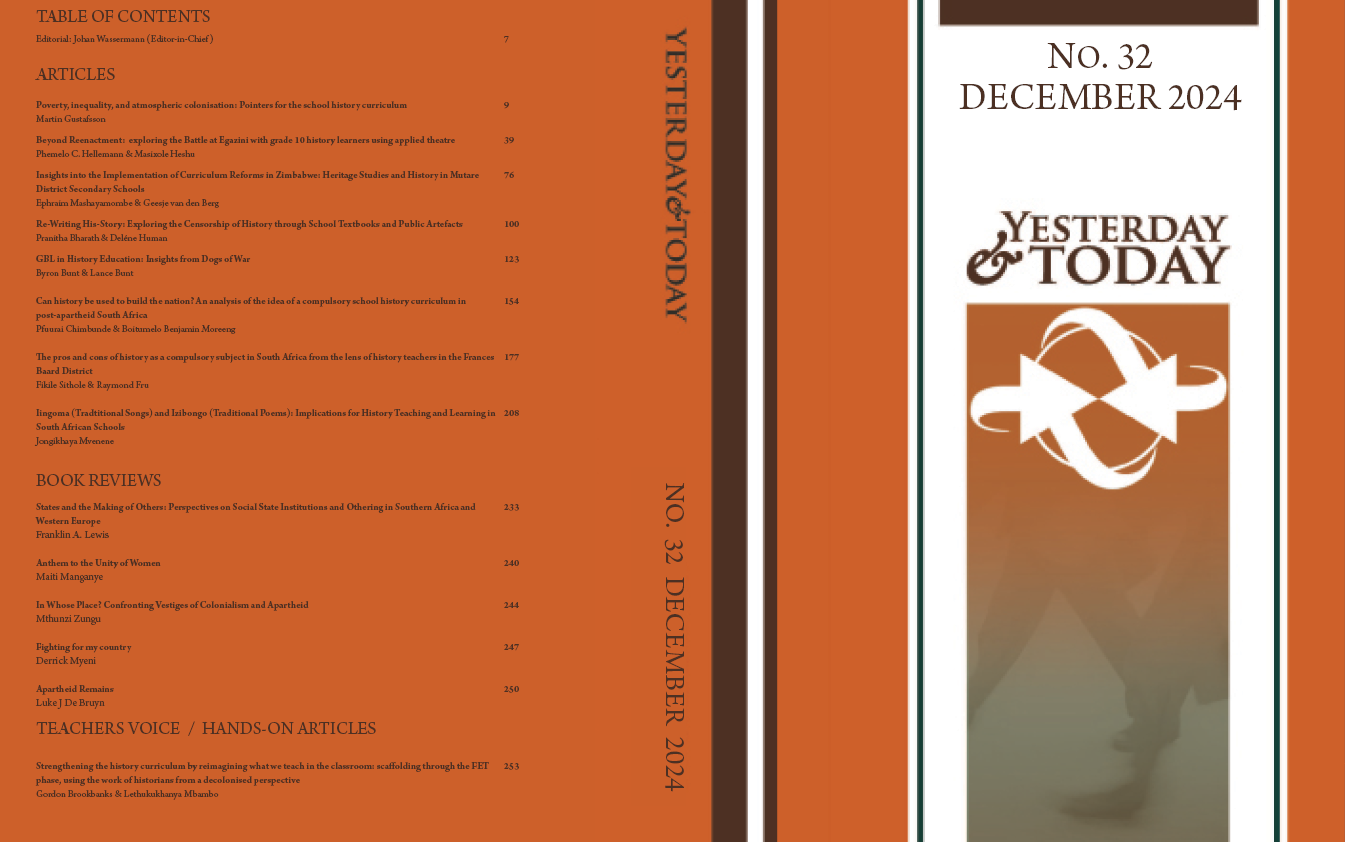Insights into the Implementation of Curriculum Reforms in Zimbabwe: Heritage Studies and History in Mutare District Secondary Schools
DOI:
https://doi.org/10.17159/Keywords:
history, Heritage Studies, Curriculum framework, Curriculum implementation, Curriculum implementation review, Secondary schoolsAbstract
This study was motivated to assess the implementation of Zimbabwe’s 2015-2022 curriculum, particularly to establish whether the Heritage Studies and History curriculum reforms were successfully implemented in line with the official dictates. This was anchored on the backdrop of the problem that, while Zimbabwe’s Ministry of Primary and Secondary Education, through a circular in January 2017, gave a directive mandating secondary schools to implement curriculum changes between 2017 and 2022, may not have guaranteed the successful adoption and implementation of the latter at secondary schools’ level. While curriculum reform implementation is meant to ensure the realisation of national goals, global evidence has it that there are a variety of factors that inhibit successful curriculum implementation. Given such a scenario, a review of the implementation of The study provides insights into the implementation of Zimbabwe’s 2015-2022 curriculum, particularly to determine the successful implementation of the Heritage Studies and History curriculum reforms in line with official guidelines. Although Zimbabwe’s Ministry of Primary and Secondary Education issued a circular in January 2017 mandating the implementation of curriculum changes for secondary schools between 2017 and 2022, the directive alone may not have guaranteed successful adoption and implementation. While curriculum reform implementation is meant to ensure national goals, global evidence suggests various factors hinder successful curriculum implementation. The study used a qualitative approach, employing a case of secondary schools in Zimbabwe’s Mutare district to generate data. The conceptual framework adopted a five-step cyclical model for curriculum implementation review. Data was generated through interviews, complemented by document and website analysis. Ten teachers from ten secondary schools in the Mutare district participated in the study. It was established that the Ministry of Primary and Secondary Education has made important efforts to enhance the successful implementation of the new curriculum through teacher workshops and instructional materials. However, the dissemination of curriculum information and the training of teachers through workshops were rushed. The education ministry failed to monitor or evaluate the implementation process at the grassroots level. The study identified challenges, including overloading teachers with work, restricting learners’ choice of subjects, a shortage of instructional resources, and a lack of qualified teachers for the newly introduced subject, Heritage Studies. Based on these findings, recommendations have been made.


